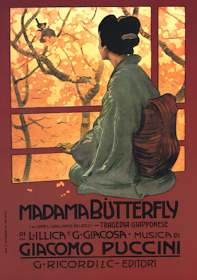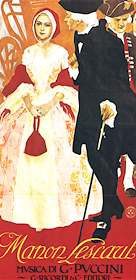
|
view operas online! |
||
|
Io son il prologo
Duetto Adina, Nemorino I act
|
||||||
Puccini and il Verismo
part III
This was a short-lived movement in Italian opera initiated by Mascagni's Cavalleria Rusticana
and Leoncavallo's Pagliacci. Verismo was mainly produced as a reaction against the mythological
music-dramas of Wagner. Tosca has been called a shabby little shocker, the fact, however
remains that it is music theatre par excellence and that Puccini was able to pour an astonishing
amount of sheer lyricism into Sardou's melodrama.
| ||||||
|
Puccini emerged into the twentieth century music world as the "King of Verismo," not through the conducting background of Mascagni or through the skilled compositional ability of Giordano, but as a master of theater. Puccini wrote solely for the operatic stage and he understood the dramatic intensity and melodic poignancy of real life subject matter. Critics have sometimes dismissed his work as overly impassioned, melodramatic, and sentimental. The composer himself proclaimed, "The only music I can make is that of small things," although he admired the grander stylistic abilities of Verdi and Wagner. Despite that admiration, Puccini chose to concentrate on life's familiar bittersweet passions and intense emotional storms.
| ||||||


|
||||||
| top
|
||||||






 View opera I PAGLIACCI
View opera I PAGLIACCI
